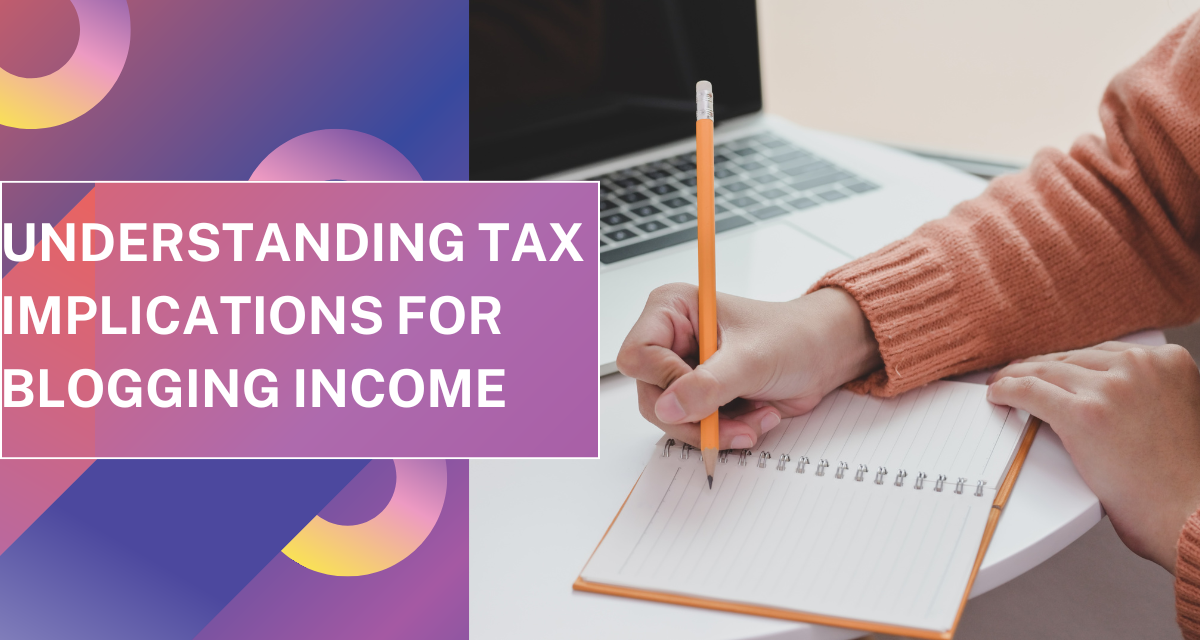With the popularity of social media reaching an all-time high, there is a constant rise in the demand of bloggers or content creators. Blogging is a lucrative profession not just because of its high income potential, but also because it gives you the freedom of expression.
The Income Tax Act imposes a tax on the income that bloggers make. We will be seeing more clearly on this concept, and for that let us first be clear about what is meant by blog and blogger.
Meaning of Blog & Blogger
The Oxford Learner’s dictionary defines blog as a website where an individual person, or people representing an organization, write regularly about recent events or topics that interest them, usually with photos and links to other websites that they find interesting.
The same dictionary defines blogger as a person who writes a blog.
Having understood the meaning of a blogger let us find out the various sources of income for a blogger:
- Promotions: The blog becomes a platform for promoting the products or services of a company. The blogger gets money each time when a reader or any person clicks the advertisement. If the content of the advertisement is attractive, then the blogger will definitely see an unexpected increase in his income.
- Paid Review: Bloggers who have good following and are popular often get paid for promoting products or services of businesses. Business approach these bloggers for promotion of their products, they write a review and in turn get paid for it.
- Affiliate Sales: The blogger places a link directing to a particular product or service that he is blogging about. If a reader clicks on the link and purchases the product or service, the blogger gets paid for it.
- Others: Other sources of income might include Blog Consultancy, Blog Designing, SEO services, Content Services, freelancing etc.
Tax Implications on Bloggers
The bloggers earning income from blogs are considered to be self-employed individuals and their income is considered to be income from business. It is important for the bloggers to keep a track of their income from all sources and expenditures. Under this section of income as per the Income Tax Act, the taxpayer must pay taxes on the income in profit and loss account after taking into consideration the total revenue and the expenses and remit taxes on the net income.
Deduction allowed for Bloggers:
- Domain hosting expenses.
- Rent expense.
- Utility expenses such as electricity, telephone, etc.
- Employee salaries.
- Payments to freelance consultants.
- Convenience charges.
- Any additional charges that are incurred for the objective of earning income.
- Depreciation on fixed assets
It is imperative that the allowable expenses must be incurred to generate revenue for the business. The business’s ability to generate revenue must be promoted or made easier by the costs incurred. The blogger is required to save the bills and receipts as legal evidence of the costs incurred.
Investments Options for Blogger
The blogger can also make investments in mutual funds, LIC, PPF etc. to reduce their tax burden. The investments are deductible under section 80C of the Income Tax Act. The deduction for the specified investments will be allowable as per the limits specified in the Income Tax Act.
Illustration: Let us assume Mr. ABC is a famous blogger and his profit & Loss statement is as below.
| Particulars | Amount (Rs) (Annual) |
| Revenue from Blogging | 10, 45,000 |
| Employee Salary | 45,000 |
| Domain Hosting | 30,000 |
| Marketing | 45,000 |
| Utility Expenses | 1, 50,000 |
| Rent | 1, 20,000 |
| Net Income Taxable | 6, 55,000 |
On this net income, the deductions are calculated and tax is paid on the balance amount as per the Income Tax slab rates.
All the expenses incurred in a financial year are required to be declared while filing the ITR.
But, if someone does not want to maintain a record of every transaction then, they can declare income u/s 44ADA, where they only need to declare their gross receipts and declare a minimum of 50% of gross receipts as their taxable income.
However, this option can only be availed by bloggers with a turnover of not more than ₹50 lakhs; otherwise, they will need to file normal ITR.
Other Points to remember:
- If your estimated tax liability is more than ₹10,000, then you need to pay advance tax i.e., pay taxes in installments.
- The blogger will need a Permanent Account Number (PAN) for the filing of the income tax returns.
- The income tax provisions applicable to bloggers with respect to the blogging income are comparable to a business owner receiving business income.
- The blogger must file the income tax return within the time specified and pay the balance tax or claim refund.

